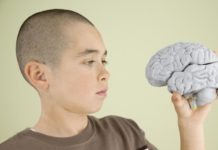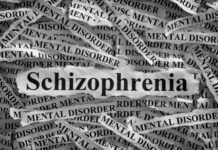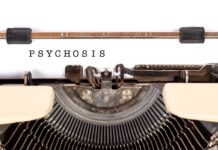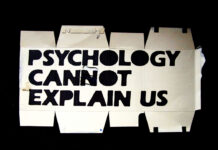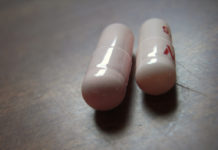Memoirs of a Dissident Psychiatrist
For years I had hoped that psychiatry would free itself from the psychoanalytic doctrine, and when my wish finally came true, my profession went from the frying pan to the fire. My main goal, currently, is to convince professionals as well as the public that most child psychiatric problems can be handled effectively without medication.
Hallucinations Reported as Side Effect of ADHD Medication
Hallucinations and other psychotic symptoms have been reported after methylphenidate (Ritalin) treatment for ADHD.
Seeking Justice
My life flashed before my eyes as my entire medical history over the last decade was rewritten from having a genetic brain disease to being a victim of a medical scam. It was bittersweet, for I realized that I was not sick and dying, but I had been robbed of so many years of my life due to the psychiatrist’s lies. Now I am suing my former psychiatrist for damages.
The Invisibles: Children in Foster Care
Millions of current and former foster children experience multiple kinds of trauma, as documented in a six-part investigative series published in the Kansas City Star this month. Too often invisible, these young people deserve our attention and our care.
The FDA Is Hiding Reports Linking Psych Drugs to Homicides
In my wildest dreams, I could never have imagined being drawn into a story of intrigue involving my own government’s efforts to hide, from the public, reports of psychiatric drugs associated with cases of murder, including homicides committed by youth on the drugs. But that is precisely the intrigue I now find myself enmeshed in.
Researchers Warn of “Brain Atrophy” in Children Prescribed Antipsychotics
Researchers discuss the evidence that antipsychotic medications may cause brain atrophy in children, whose brains are still developing.
Zel Dolinsky: I Have a Right to “Death With Dignity”
Researcher Zel Dolinsky once taught at medical school and worked as a medical writer in the pharmaceutical industry. In his last emails, he told of how the adverse effects of psychiatric drugs led him to choose to end his life.
Very Slow Tapering Best For Antidepressant Withdrawal
A new article in Lancet Psychiatry finds that slower tapering of SSRIs is better for preventing antidepressant withdrawal effects.
Invisible Trauma: The Children Left Behind When Parents Are Hospitalized
It would take decades before I recognized the trauma caused by repeatedly being separated from my mom when she was hospitalized. I grieved almost exactly the way children did who had lost a parent to death. Yet it was grief without closure because my mom was not dead, just... gone.
Study Finds ADHD Drugs Alter Developing Brain
A new study, published in the JAMA Psychiatry, investigates the effect of stimulant ‘ADHD’ drugs on the brains of children and young adults. The...
Belongingness Can Protect Against Impact of Trauma, Study Suggests
A new study explores feelings of belongingness as a protective factor for childhood trauma and adult mental health outcomes.
Investigate the Markingson Suicide? Not So Fast, Says University President
Responding to a letter signed by 175 scholars asking for an inquiry into the death of Dan Markingson at the University of Minnesota, the Faculty Senate voted to investigate clinical research at the university. But the university president says the Markingson case will not be part of the investigation. What is he trying to hide?
“I’m Not Going, You Can’t Make Me!”: A Community Approach to School Refusal
Consider an imaginary child called Jack who has been avoiding school as much as possible for a month. Standard practice would be cognitive-behavioral therapy or psychoactive drugs to help Jack deal with his anxiety. But what if Jack's social network instead mobilized to help him regain the role of student?
Researchers Make the Case to Rename Schizophrenia
The authors outline reasons for renaming schizophrenia and the way a change can reform practice.
De-Othering “Schizophrenia” by Placing it in Socio-Historical Context
Understanding schizophrenia as a non-enigmatic, understandable human experience goes against a history of institutional “othering” that has sustained psychiatric legitimacy and further marginalized service-users.
Study Suggests Long-Term Antipsychotic Use May Result in Poorer Cognitive Functioning
Association found between long-term antipsychotic use and poorer performance on cognitive tasks in adults diagnosed with ‘schizophrenia.’
And That’s the News from the Department of Psychiatry
In the business of clinical trials, the most valuable commodities are the research subjects. Filling clinical trials is hard, and filling them quickly is even harder. That’s why in 2000 a clinical investigator told the HHS Office of the Inspector General that research sponsors were looking for three things from research sites: “No. 1—rapid enrollment. No. 2 — rapid enrollment. No. 3 — rapid enrollment.”
On the Link Between Psychiatric Drugs and Violence
One of psychiatry's most obvious vulnerabilities is the fact that various so-called antidepressant drugs induce homicidal and suicidal feelings and actions in some people, especially late adolescents and young adults. This fact is not in dispute, but psychiatry routinely downplays the risk, and insists that the benefits of these drugs outweigh any risks of actual violence that might exist.
An Alternative Perspective on Psychotherapy: It is Not a ‘Cure’
Kev Harding argues against conceptualizations of therapy as a ‘cure’ to an ‘illness’ and instead offers alternative approaches.
Part II: Michelle Starts Prozac and Sees the Devil
By 2011, anyone who read the scientific literature would have known that children cannot tolerate SSRIs and should not be given them. Neither Conrad nor Michelle seemed to have been warned about the common adverse effects (such as nightmares and compulsive suicidality) of the SSRI antidepressants they were on.
Antidepressants Increase Risk of Death, Study Finds
Antidepressants are commonly considered safe and effective treatments. However, research has questioned their efficacy, and now, their safety.
Study Highlights Mental Health Consequences of Parent Emotion Suppression
New research suggests that when parents model emotion suppression strategies in social interactions, their children’s approaches to social engagement may suffer.
The Proactive Search for Mental Illnesses in Children
Part one of a two-part Mad In America investigation into the expansion of psychological screening and electronic surveillance of children and youth. A new government-funded mental health training program for British Columbia family physicians and school staff promotes screening for mental disorders in all children and youth. Critics say the program omits key scientific evidence, seems more like drug promotion than medical education, and downplays serious potential harms. Nevertheless, programs like it are rolling out across Canada and the US.
Scientists Clarify Risks of Augmenting with Antipsychotic Medications for Depression
The researchers found that while antipsychotic drugs may be slightly more effective than alternative antidepressants, they come with a much higher side effect burden.
Initial Trial of Ayahuasca for Depression Shows Promising Results
Ayahuasca found to be effective in treating moderate to severe depression in low-income population.






